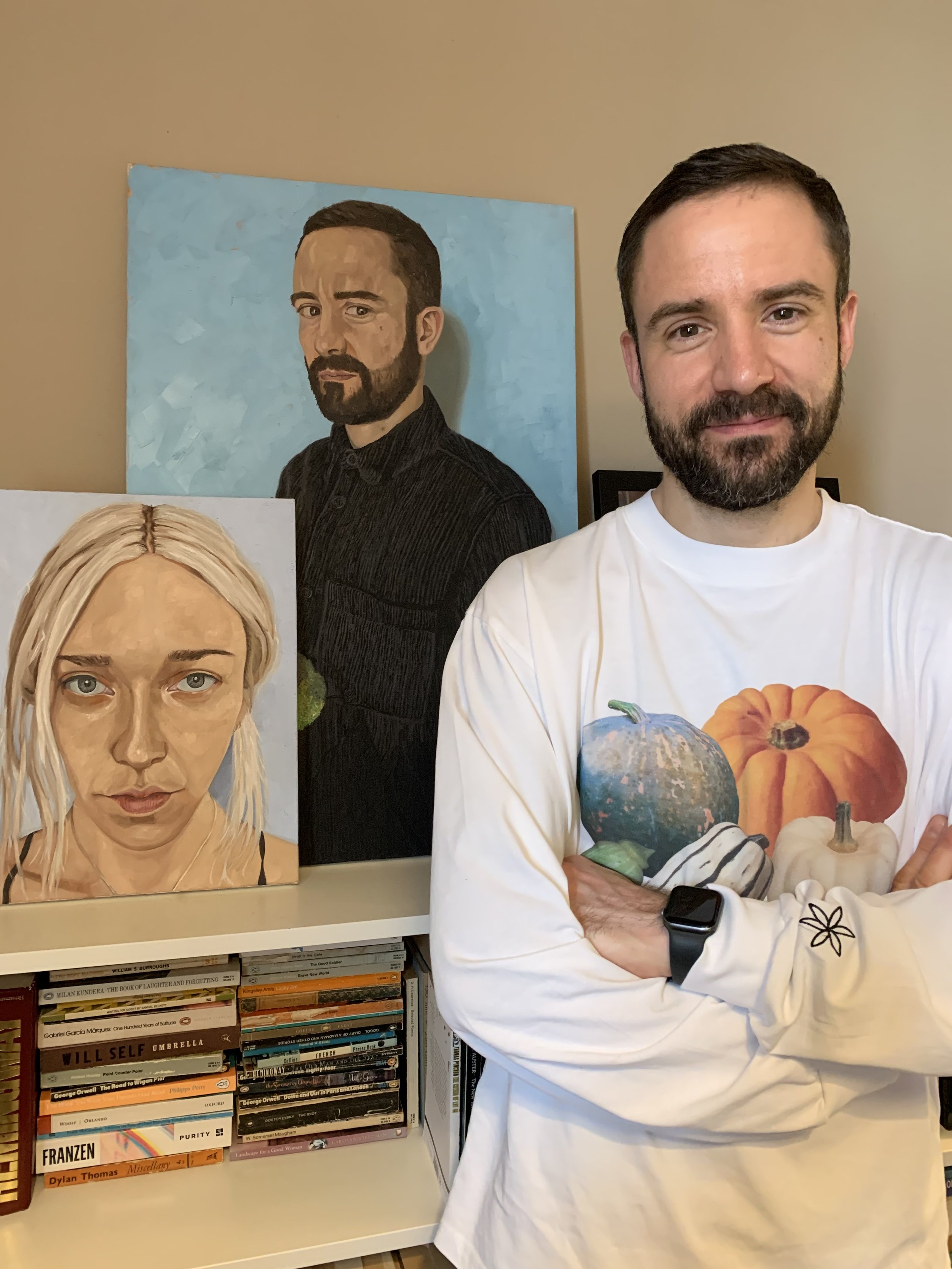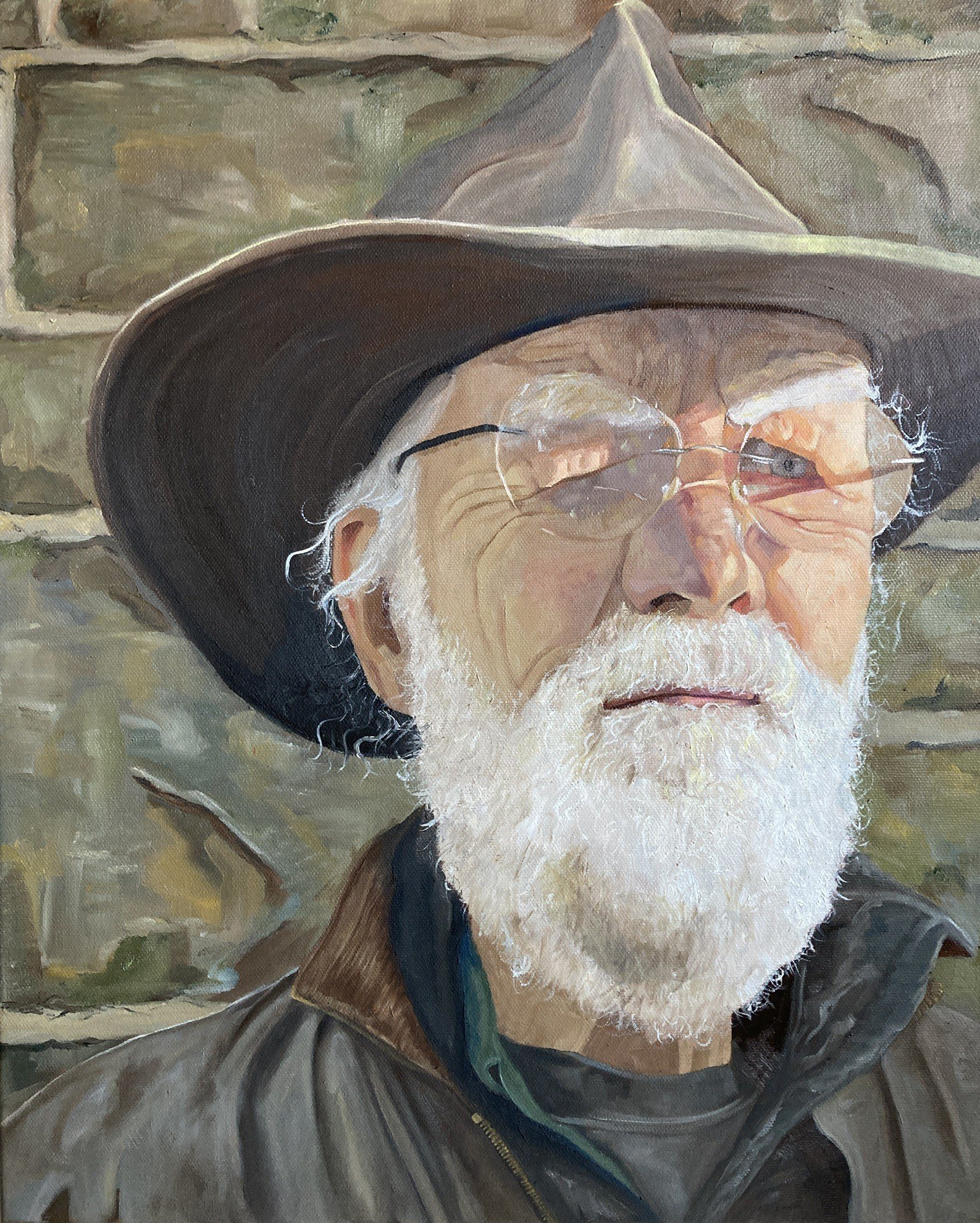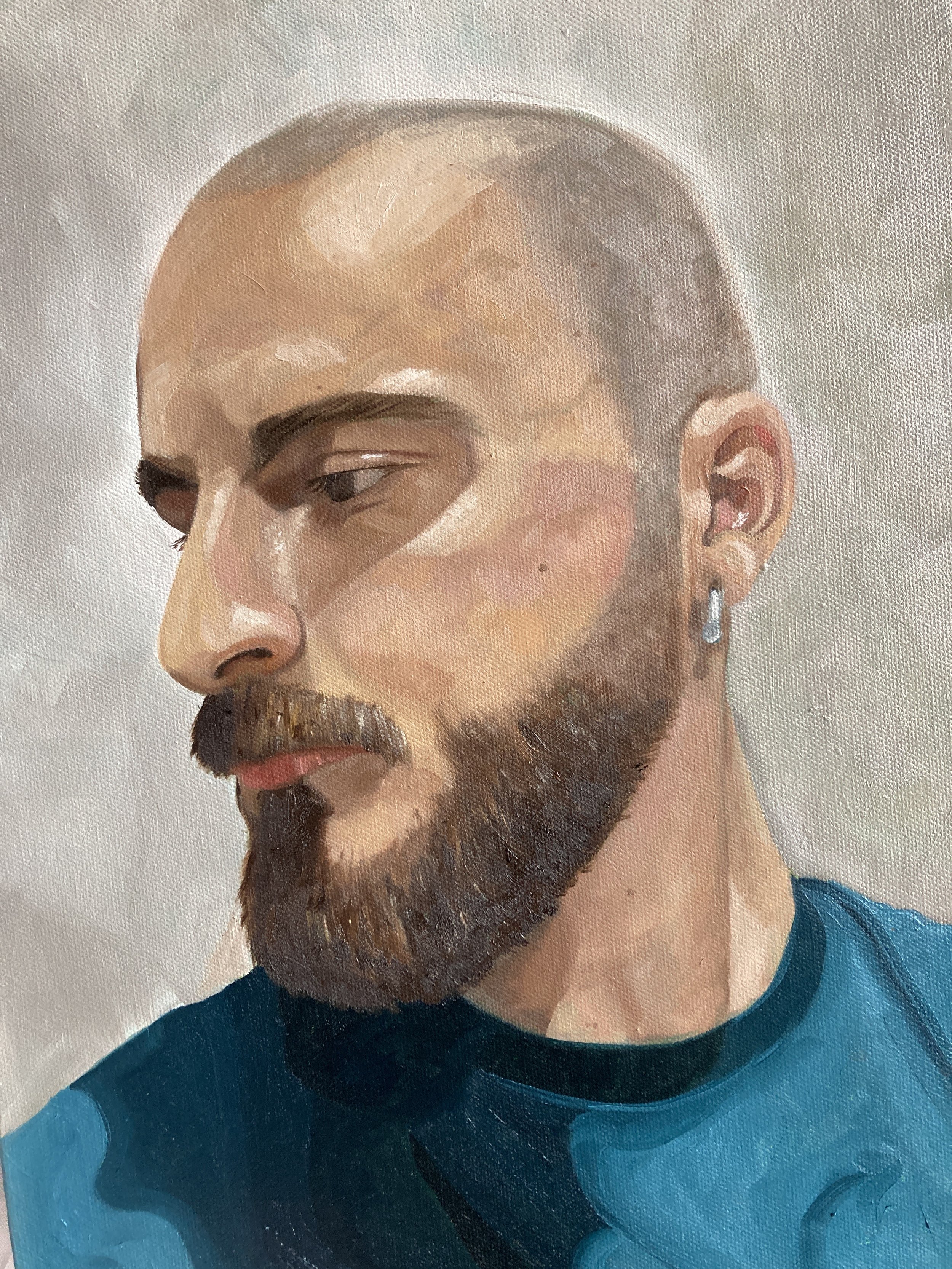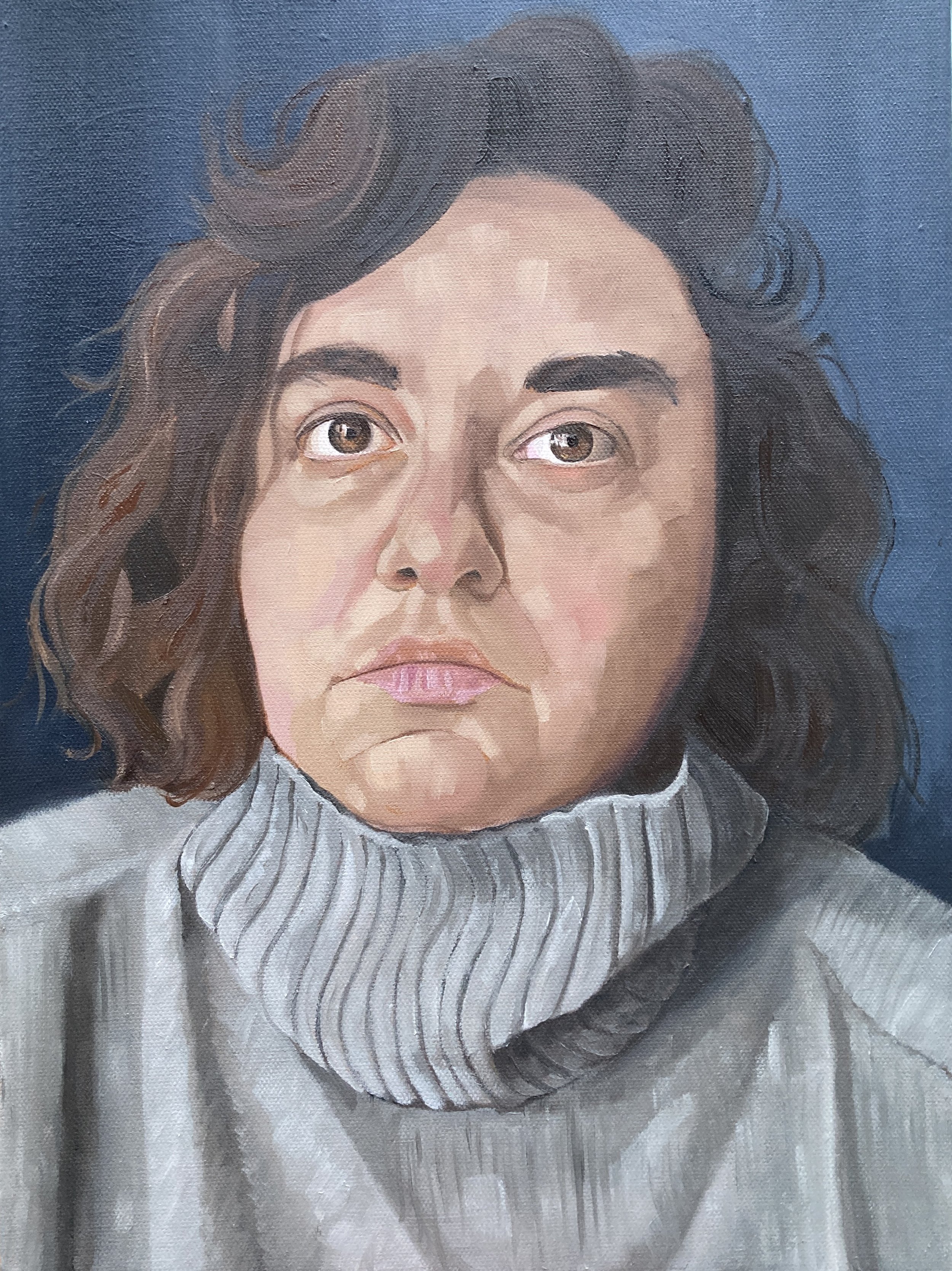ARTIST INTERVIEW: Gareth Bell
Please can you tell me about yourself
I am a self-taught painter of portraits, based in Saltaire, West Yorkshire. I am also a dad, a digital consultant, and a dog parent, so most of my painting happens between the hours of 11pm and 6am when everyone is asleep. You could say I’m a bit like batman, only much less cool and without the deep rooted psychological issues and penchant for vigilantism.
What inspired you to paint? What is it about portraiture that interests you?
I began painting during a coronavirus lockdown in January 2021. I was drawn to painting faces because I was seeing so few of them - I missed my family and friends deeply, so asking for selfies and painting them, badly at first, then gradually better, was a way of connecting with those I couldn’t physically be with. My work is still based on that premise - I love poring over images of humans and trying to draw out some of their inner being through paint.
Describe your creative process; from start to finish of a painting. Where do you find your inspiration?
My process generally begins with a photo, often of a friend or family member, or somebody who I meet who has something about them. I’ll then create a quick charcoal sketch on the canvas to give me a bit of a map to follow, before getting stuck in with the painting. In terms of inspiration, I would say crippling anxiety at the ephemeral nature of life, if that doesn’t sound too bleak! Painting for me is a way of stretching time, of capturing an otherwise fleeting moment and staying with it, of giving it some substance and permanence.
What is your favourite piece of work you have created and why?
I have a bit of a weird relationship with most of my work, in that I love them all like my children, but I am also my own biggest critic and filled with self-loathing. I would say my favourite is a work called Hanging on the Telephone, which I exhibited at Old Parcel Store in Scarborough as part of their Open Exhibition earlier this year. This piece won the exhibition’s first prize and was a huge boost to my confidence as a painter, and has opened up lots of opportunities for me.
How would you describe your style?
My style is realistic but not slavishly so, possibly due to a lack of talent more than anything else, but lets pretend it’s intentional.
Who is your favourite artist and why? Do they have an influence on your work?
I am equally enthralled and intimidated by the old masters and find a lot of inspiration in their composition and use of light and shade. I love Lucian Freud, but that’s a bit like saying your favourite footballer is Pele or your favourite band is the Beatles - he’s so good and so unanimously appreciated it’s almost pointless to call him out. I derive the most inspiration from the wonderful community of contemporary artists, many of whom you have interviewed in these pages, and it is a constant source of amazement to me that people of such talent and prestige are so supportive and welcoming to a blithering idiot like me.
What do you think is the key to capturing a likeness?
I think trying to abstract yourself away from facial features, to think more in terms of shapes and light. I can get sucked into slavishly painting an eye or a nose, but that road generally leads to disaster.
How has your art changed since you started creating it?
Unbelievably so, and I hope it continues to at the same pace! When I started, I was a lot more adventurous with colour and mark making, and there’s something about those early paintings that I’d like to revisit. I’d love to eventually paint portraits in a much looser, more painterly way, but for now I’m enjoying where things are heading.
What has been your greatest achievement so far as an artist?
The main thing for me, as a relatively new artist, is that I have formed a habit that is nourishing and sustainable. Everything else is a bonus. I hope to be doing this for the rest of my days, and if I can maintain the same level of enjoyment then that will be an achievement in itself!
Why do you think art is important in society?
Without the arts; music, literature, poetry, performance and painting - society would fall apart. Humans have been blessed and cursed with these big ol’ brains that are constantly searching for meaning, purpose and connectedness. Art is the primary way in which we find those things, the way we communicate big, complex topics and emotions in formats that can be universally understood.








